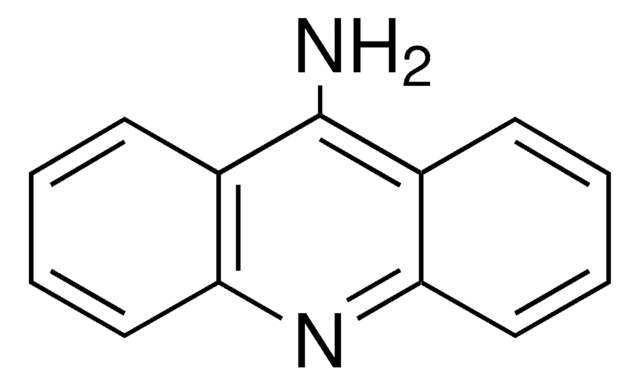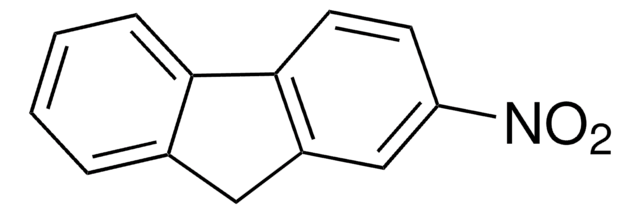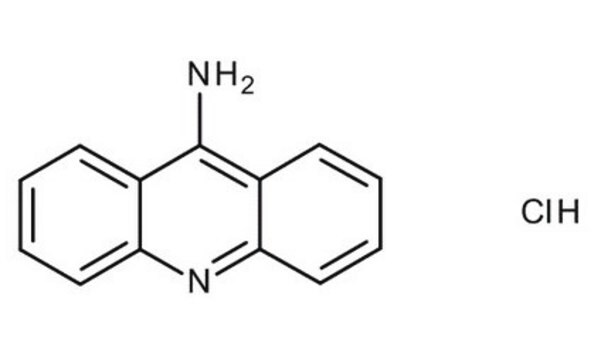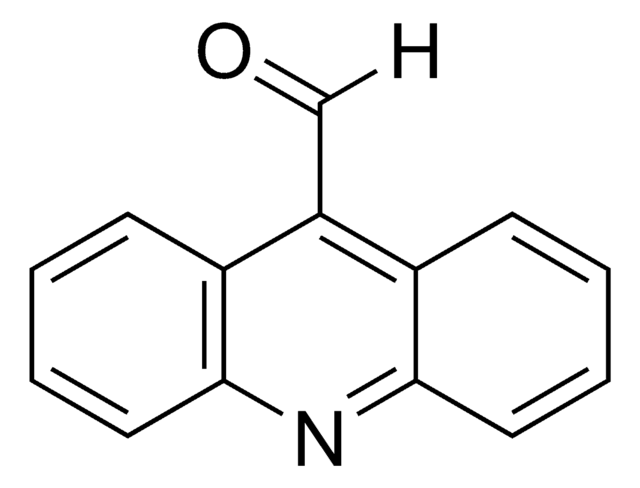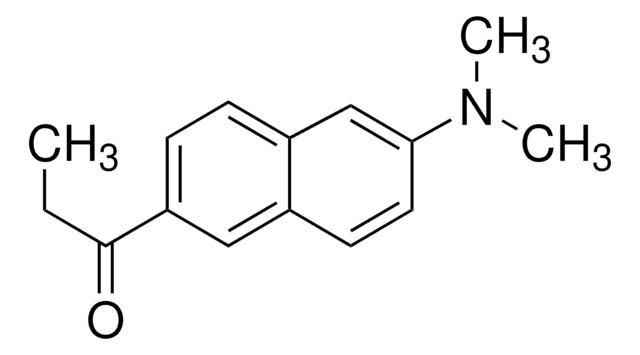About This Item
Recommended Products
Quality Level
Assay
98%
form
powder
mp
300 °C (lit.)
λmax
400 nm
420 nm (2nd)
SMILES string
O.Cl.Nc1c2ccccc2nc3ccccc13
InChI
1S/C13H10N2.ClH.H2O/c14-13-9-5-1-3-7-11(9)15-12-8-4-2-6-10(12)13;;/h1-8H,(H2,14,15);1H;1H2
InChI key
OREJEGKBQBIJSJ-UHFFFAOYSA-N
Looking for similar products? Visit Product Comparison Guide
Application
Signal Word
Danger
Hazard Statements
Precautionary Statements
Hazard Classifications
Acute Tox. 3 Oral
Storage Class Code
6.1C - Combustible acute toxic Cat.3 / toxic compounds or compounds which causing chronic effects
WGK
WGK 3
Flash Point(F)
Not applicable
Flash Point(C)
Not applicable
Personal Protective Equipment
Choose from one of the most recent versions:
Already Own This Product?
Find documentation for the products that you have recently purchased in the Document Library.
Customers Also Viewed
Articles
Nitric oxide (NO) as a signal transporter in neurons, endothelial cells and in the immune system.
Our team of scientists has experience in all areas of research including Life Science, Material Science, Chemical Synthesis, Chromatography, Analytical and many others.
Contact Technical Service
